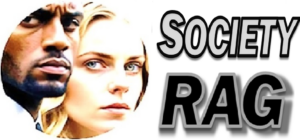When it comes to the relationship between mood and drinking, there has long been a common belief that people turn to alcohol to drown their sorrows. However, recent research has shed new light on this topic, revealing an unexpected twist. Contrary to popular belief, it appears that individuals are more likely to consume alcohol in excess when they are in a good mood, rather than when they are feeling down.
The findings of a comprehensive study, which analyzed data from 69 studies encompassing a total of 12,394 participants in the U.S., Canada, France, and Australia, have challenged the prevailing assumption. These studies utilized surveys to assess mood and drinking levels, allowing researchers to gain valuable insights into the complex relationship between emotions and alcohol consumption.
Surprisingly, the results indicated no significant evidence supporting the notion that individuals drink more on days when they are feeling low.
Instead, the data revealed a fascinating trend: people tend to indulge in heavy drinking when they are in a positive emotional state.
According to the research, individuals were found to be between 6% and 28% more likely to drink alcohol on days when they experienced a good mood. Furthermore, they were also 17% to 23% more likely to engage in binge drinking, defined as consuming more than four or five drinks within a short period, on such occasions.
But what exactly explains this phenomenon? Why do individuals gravitate towards excessive alcohol consumption when they are feeling happy? To shed light on this intriguing puzzle, researchers have identified several potential factors.
‘Desire thinking’: The power of anticipation
One important element at play is the concept of “desire thinking.” This cognitive process revolves around the anticipation of positive outcomes derived from particular experiences, based on our associations with those experiences.
Before consuming alcohol, individuals often have certain expectations rooted in past encounters. These expectations may be related to the taste of the alcoholic beverage, the sensation of intoxication, or the belief that alcohol enhances their social appeal.
Additionally, positive memories associated with previous instances of drinking can further contribute to a favorable outlook on alcohol consumption. Consequently, when contemplating having a drink, individuals tend to immediately associate it with positive connotations.
However, this combination of positive thoughts and emotions poses a challenge when it comes to exerting control and resisting the urge to drink excessively. Studies indicate that positive beliefs can diminish the sense of control individuals have over their thoughts and behaviors, making it difficult to break free from the grip of desired thinking.
Conclusion
Contrary to the prevailing belief that individuals turn to alcohol to alleviate sadness, research suggests that people are more likely to drink heavily when they are in a positive emotional state. The phenomenon of desire thinking, fueled by the anticipation of positive experiences associated with alcohol, plays a significant role in this behavior. However, by cultivating mindfulness and recognizing the power of choice, we can regain control over our desires and make informed decisions regarding alcohol consumption.

